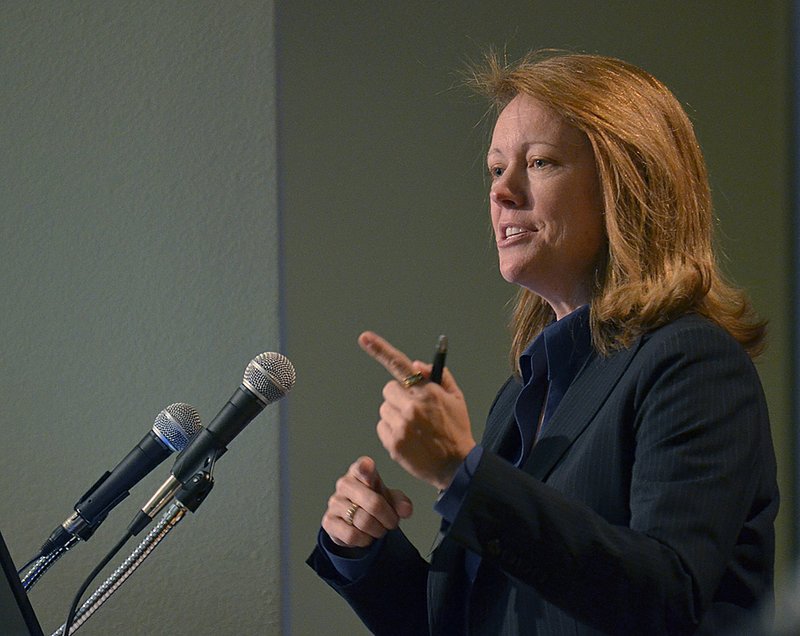FAYETTEVILLE — Administrators and the faculty at the University of Arkansas at Fayetteville want new ways to keep students from cheating in online courses, faculty members said Thursday.
The search for improvements comes after university administrators investigated a cheating case in the fall of 2009 in which several students were accused of paying another student to take their online math quizzes.
“We’d be stupid not to look and try to use technology for teaching,” said Tom Senor, who teaches an online philosophy course.
This fall, the university offered more than 125 online courses. A push is under way to expand the course offerings, but many professors remain wary.
“I had concerns about academic integrity and online exams,” Senor said of the course he taught last fall.
More than 150 faculty members gathered Thursday at the Arkansas Union ballroom to hear about teaching techniques, online teaching tools and retaining academic integrity in online courses during the Winter Teaching Symposium.
As enrollment at the university has surged to 21,406, more students are taking courses online, said Deborah Korth, director and vice chairman of the university’s Mathematics Resource and Teaching Center.
Last fall, the math department looked at 2,305 math placement tests taken by prospective students online. The center oversaw more than 14,000 individual testing assignments and caught two people cheating, said Brandon Crisel, a staff member in the mathematics department.
Edward Pohl, operations management director for the graduate program, said he is looking at what outside companies can offer to help administer online tests for his college. Korth is researching ways to give tests and quizzes online while ensuring a student’s identity and to prevent cheating by using proctors - people who supervise or monitor students during examinations - who would remotely monitor student computers.
“I’m starting to look at this because we are running out of room [in the computer lab],” she said.
The center is already open Sundays and has extended hours to 7:30 p.m. Monday through Thursday to accommodate more online quiz takers.
The university either needs to hire a proctor through a company or needs a center where all online courses can be monitored, as they are in the mathematical sciences department, Korth said.
In the proctoring of remote testing, a student could be monitored through a web camera or through technology that asks random questions only the student should know, analyzes handwriting or uses fingerprint recognition.
“They claim that this is more secure than a face-to face center like ours, and I’m beginning to think they are right,” Korth said.
Chancellor G. David Gearhart said faculty members and Provost Sharon Gaber are talking about academic integrity in online courses, including the development of a new university policy that is still in draft form. Gaber did not return a phone message left at her office Thursday afternoon.
University officials want to prevent students from cheating after the university investigated a group of students accused of hiring Michael Griffis, their tutor, to take online quizzes for them. Officials wouldn’t say whether the students were punished, but some parents said their children were exonerated.
Griffis withdrew from the university and was charged with a misdemeanor regarding the use of someone else’s identity. His first court appearance is within the next six weeks, deputy prosecutor Brian Thomas said.
The case caused the mathematical science department to lower the value of online quizzes and restrict testing to the center, where cameras monitor students.
Faculty members said Thursday that the main drawbacks to tightening security for online courses are the costs and that it could infringe on student privacy. Some students will object to fingerprint scans, they said.
Paul Cronan, an information systems professor who teaches a course with both online and in-class elements, said the real question is whether tests are the best way to determine how much a student knows.
“Technology can’t do our job for us,” Cronan said. “We still have to find ways to assess high levels of learning.”
Arkansas, Pages 11 on 01/14/2011
